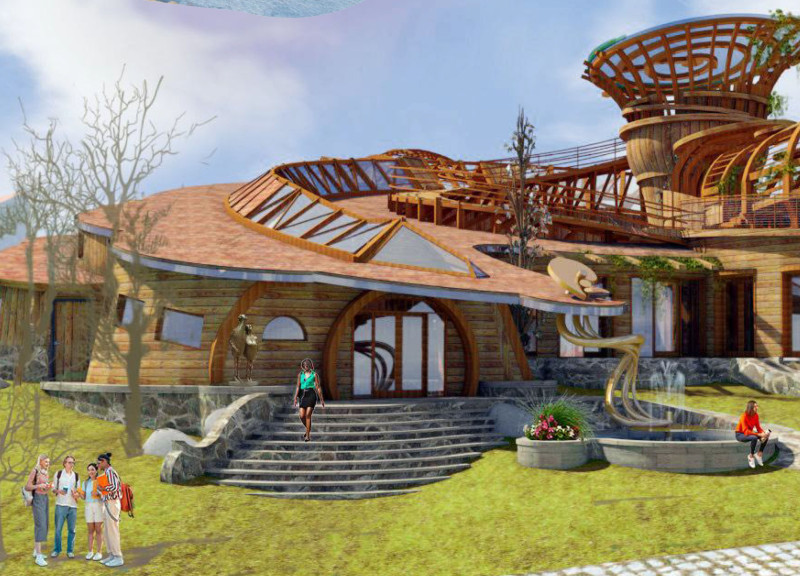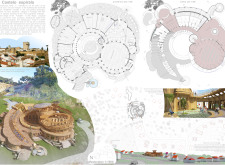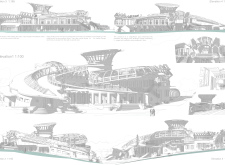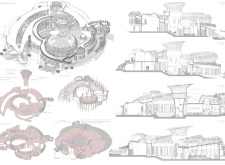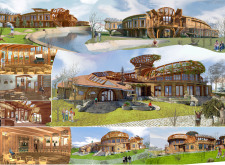5 key facts about this project
"Castelo Espirala" is a community home designed to serve as the heart of a new residential area influenced by the rich history of medieval Portuguese architecture. The structure takes on a spiral shape that encircles a central courtyard, encouraging interaction among residents while blending with the natural landscape. Opening up towards a nearby pond, the layout invites a stronger connection between the living space and the environment.
Design Concept
At the center of the design is a courtyard that facilitates gatherings and community events. The spiral form follows the natural slope of the terrain, guiding the movement of people through the space. A prominent feature is the tower, which provides an observation deck and incorporates a rainwater retention tank, merging functionality with sustainable practices.
Materials and Sustainability
Materials play an important role in the character of the home, with wood as the main choice for its warmth and sustainability. Cork is used in specific areas, linking the design to local craftsmanship, while drywall lends a modern touch to interior spaces. Traditional masonry creates sturdy retaining walls at the ground level, ensuring durability and a connection to the historical context.
Community Spaces
The inner courtyard serves multiple purposes, functioning as a lobby for the main hall and featuring a small amphitheater for events. This design enhances opportunities for community interaction and social engagement. Different facades offer diverse views as residents move around, maintaining a connection with the outdoor spaces.
Connection to Nature
The design prioritizes a strong relationship with the surrounding nature. Solar panels on the roof support energy efficiency and create an interaction with the nearby forest. A rooftop lounge, accessible from the café below, provides areas for relaxation and contemplation. The façade facing the pond includes dedicated spaces for yoga and meditation, encouraging an immersive experience with nature.
A thoughtfully designed fountain at the main entrance collects rainwater from the roof. It features a spiral sculpture that not only adds visual interest but also highlights a commitment to sustainable design practices.


